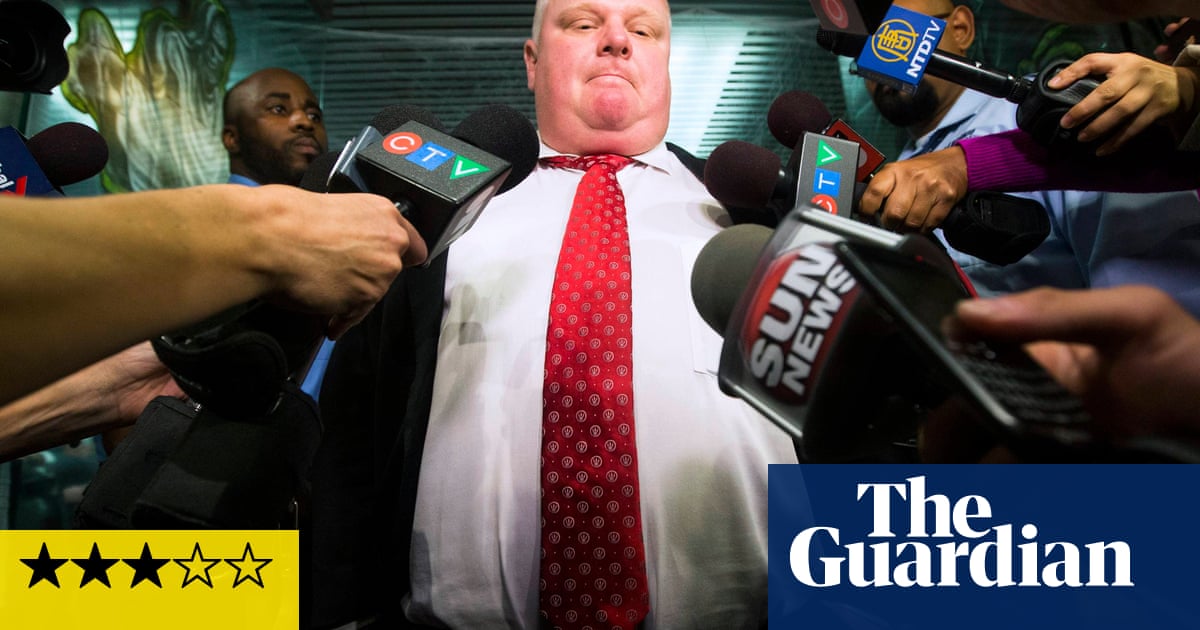In recent years, political scandals have seemingly become the norm rather than the exception. The deeply examined life of Rob Ford, the former Mayor of Toronto, exemplifies this trend. Ford garnered international notoriety after being caught in a whirlwind of controversy, particularly for his reported admission of smoking crack cocaine. His story is revisited in the new documentary "Trainwreck: Mayor of Mayhem," which draws viewers into an era that feels distant yet painfully relevant.
The documentary clocks in at a brisk 49 minutes, effectively capturing the chaos that surrounded Ford during his time in office. Released as part of Netflix’s "Trainwreck" series, it aims to distill Ford’s tumultuous tenure into a comprehensive yet digestible narrative. The show brings a shocking clarity to what once seemed an insurmountable barrage of scandals.
Ford’s rise to power in 2010 was characterized by his straightforward, uncompromising demeanor. Portrayed as an outsider willing to take on what he deemed a wasteful and bloated bureaucracy, Ford resonated with varied demographics—appealing to both the affluent and working-class citizens alike. The documentary makes it clear that Ford’s motivations were deep-rooted, perhaps a reflection of his desire to impress his domineering businessman father, a figure with a storied political legacy himself.
As the narrative unfolds, viewers are transported back to a pre-scandal Toronto, where whispers of Ford’s previous indiscretions began to fester beneath the surface. These included prior arrests related to drug and alcohol abuse, as well as incidents where he would vanish from official duties to coach a local football team. Initially brushed aside by supporters as mere human flaws, these early indications of trouble hinted at the storms to come.
By 2013, allegations regarding Ford’s substance abuse escalated, culminating in reports of a video that purportedly showed him in the act of smoking crack. The documentary recalls the moment when Toronto’s then-Chief of Police, Bill Blair, publicly confirmed the existence of the video—a revelation that sent shockwaves through the city. Despite the mounting evidence, Ford’s public defiance was unyielding. His mantra of “I have no reason to resign” became a familiar refrain, solidifying his position even as skepticism grew around him.
As the fallout continued, the documentary illustrates the bizarre carnival-like atmosphere that characterized Ford’s reign. Audiences will find both amusement and exasperation listening to Ford and his team recount the chaotic events that transpired. It becomes increasingly evident that the political world has shifted; what was once scandalous has seemingly become trivialized. The film suggests this very transformation in the public’s perception of political misbehavior, drawing parallels to the populism that has taken many Western nations by storm.
Our contemporary political landscape often mirrors the strategies employed by Ford, particularly in their shared penchant for sowing doubt about institutions designed to hold them accountable. Just like Donald Trump, Ford mastered the art of manipulating narratives, creating confusion among supporters and critics alike. The result? A disillusioned electorate unsure of whom to trust or believe. This type of spectacle-based politics has morphed into a circus that disarms conventional checks and balances, evolving into an unsettling status quo.
While the documentary captures the essence of Ford’s chaotic approach to leadership, it also skirts around the deeper issues intertwined in his story, notably addiction and its ramifications. As Ford’s self-destructive behavior became more evident, he began to move from a figure of comedic relief to an embodiment of tragedy. His claims of accountability were continuously undercut by poor decisions fueled by substance abuse, leaving viewers to wonder about the genuinely human aspects of his character amid all the hubbub.
The documentary concludes with an ambiguous note, suggesting that while Ford was indeed a flawed individual, he also accomplished some good during his time as mayor. Unfortunately, this seems like a superficial gesture, as it fails to delve into the intricacies of his duality. The complex nature of public figures and the often tumultuous connection between their personal choices and public personas warrant a more profound exploration; one that “Mayor of Mayhem” unfortunately glosses over.
"Trainwreck: Mayor of Mayhem" serves both as a warning and a reminder, elucidating how certain behaviors that once shocked the public have now drifted into the realm of the ordinary. The documentary echoes sentiments that many may feel about contemporary politics—a mix of disbelief, frustration, and a twinge of nostalgia for a time when certain expectations still existed.
All in all, this documentary is not just a story about Rob Ford; it’s a mirror reflecting larger societal issues around accountability, the normalization of erratic behavior, and how the public often swings between shock and indifference. As viewers grapple with Ford’s chaotic legacy, they are also prompted to examine their own responses to the theater of modern politics.
While “Mayor of Mayhem” provides a snapshot of a time when political scandal reigned supreme in Toronto, it is also a poignant reminder that the worlds of politics and spectacle have become deeply intertwined. The documentary is now streaming on Netflix, letting viewers revisit one of the most jaw-dropping chapters in political history that continues to resonate today.









